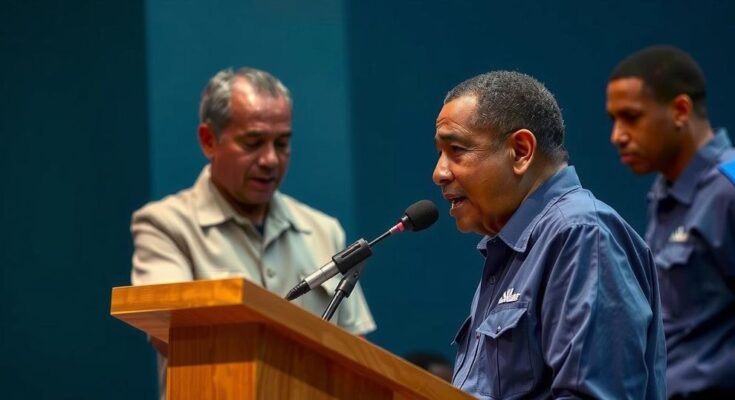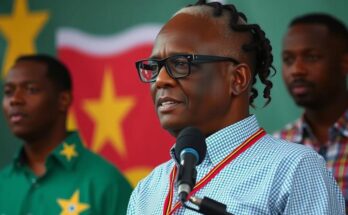Mauritius held parliamentary elections amid a phone-tapping scandal that has raised concerns about democracy and civil liberties. The elections followed a major diplomatic victory over the Chagos Islands, but leaked recordings have threatened the incumbent government. Voter turnout was 70%, with both leading parties expressing confidence in victory as they aim to tackle poverty and economic stability in a historically prosperous nation.
Mauritius engaged in a tightly contested parliamentary election on Sunday, under the shadow of a phone-tapping scandal that has ignited public concerns regarding the integrity of its democratic processes. The election’s backdrop was marked by a significant diplomatic victory, as Britain recently surrendered sovereignty over the Chagos Islands, a long-standing dispute between the two nations. However, the scandal involving leaked recordings of conversations among prominent political figures, journalists, and diplomats has unsettled the political landscape, undermining the incumbent Prime Minister Pravind Jugnauth’s expectations of an unchallenged re-election. To mitigate the fallout from the phone-tapping revelations, authorities imposed a ban on social media ahead of the election but later reversed this decision due to public backlash. This incident has raised alarms about the deterioration of civil liberties and democracy in Mauritius, a country often celebrated for its political stability and governance. The election centers around two main political groupings: Jugnauth’s Militant Socialist Movement, which currently has a majority in the National Assembly, and the Alliance of Change, led by former Prime Minister Navin Ramgoolam. With voter turnout reaching 70% just prior to the polls closing, both party leaders expressed optimism about their chances. Ramgoolam characterized the election as a potential moment of “liberation” for the electorate, while Jugnauth highlighted his government’s achievements, asserting that the populace supports their agenda. Observers from organizations like the African Union monitored the elections, and police were deployed to maintain order at polling sites. As Mauritius continues to prioritize economic growth, the challenges posed by corruption and governance issues loom large. Analysts note the necessity for economic diversification and robust institutions, citing recent procurement scandals and increased political suppression as indicators of a decline in the health of democracy. The political leadership on the island has remained remarkably stable since independence, shifting primarily among three political families, with concerns about continued nepotism and governance reform bubbling beneath the surface.
Mauritius is recognized as one of Africa’s most successful democracies, characterized by economic growth driven by tourism and financial services. The importance of the recent elections lies not only in the immediate political landscape but also in concerning trends related to civil liberties and governance. The recent transfer of sovereignty over the Chagos Islands from the United Kingdom to Mauritius is significant for national identity and decolonization efforts. However, the ongoing phone-tapping scandal threatens to overshadow these achievements, raising questions about political integrity and the future direction of the country.
In conclusion, the recent parliamentary elections in Mauritius were not only a test of political allegiance but also a reflection of the nation’s ongoing struggle with issues of governance. The leaked phone recordings have shaken public trust and raised critical questions about the state of democracy in the country. Both major parties aim to address social issues like poverty and living costs as they seek to govern, yet the underlying problems of corruption and political accountability present significant challenges. The outcomes of this election will likely shape Mauritius’s immediate future, particularly in light of the concerns surrounding civil liberties and the assurance of democratic principles.
Original Source: www.news-expressky.com



